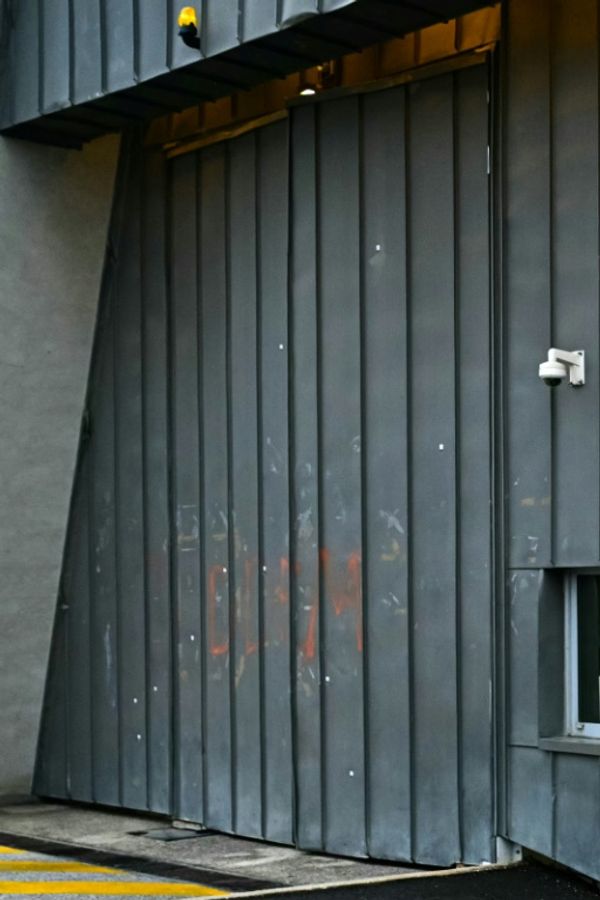
Joanna Hogg’s latest film, The Eternal Daughter (in cinemas now), is a ghost story; a tale of a mother and daughter – both played by Hogg’s longtime collaborator Tilda Swinton – who stay in a remote hotel where the spectres of the past are everywhere. It’s a wonderfully atmospheric piece, imbued with Hogg’s signature understated strength, and inflected with the same matter-of-fact eeriness that defined Jonathan Miller’s timeless 1968 MR James TV adaptation Whistle and I’ll Come to You.
It was Hogg’s executive producer Martin Scorsese who encouraged her to make a ghost story, believing that she was at the right point in her life and career to do so. But Hogg’s films have always been haunted by ghosts, and while The Eternal Daughter may be the first of her movies to explicitly declare itself to be part of this genre, it builds upon familiar themes and ideas that make up her cinematic soul.
Having cut her teeth in television, Hogg’s first two features presented arrestingly acute portraits of awkward human relationships, drawing comparisons with the works of Ozu and Chabrol. Critic Sukhdev Sandhu hit the nail on the head when he wrote that Unrelated (2007) “looks and feels and sounds like few other British films”, while reviewer Anthony Quinn called Hogg’s feature debut a film about “a class of people that may get on your nerves” that was “still likely to get under your skin”.
At the centre of this tale of monied Brits summering in Tuscany is Kathryn Worth’s Anna, a fortysomething discontent who’s partner, Alex, should be there with her, but who has instead become an absence – a fading signal on the end of a mobile phone. There’s a similar sense of presence/absence in Archipelago (2010), another critical hit that, like Unrelated, showcased star in the making Tom Hiddleston (Hogg’s casting has always been adventurous and astute). Hiddleston plays Edward, a troubled young man on a tense family holiday on Tresco, where the characters (like Scilly itself) are islands, separated by stretches of treacherous emotional water. Edward’s mother, Patricia, has invited her estranged husband to join them, but once again fraught, one-ended phone calls evoke a Godot-like void – accentuated by the absence of incidental music, and by static shots that seem less like tableaux-vivants than tableaux-mordants.

While Hogg’s first two features play out around the edges of semi-absurdist tragedy (it’s what the characters don’t say that speaks volumes), her third film, Exhibition (2013), takes us inside the haunted house – an up-for-sale modernist home that seems designed to keep its fractious inhabitants apart. Former Slits guitarist Viv Albertine is D, wrestling with the contortions of performance art while her husband, H (artist Liam Gillick), pootles away on his computer in the room above. They communicate through an intercom system (“Shall we have sex?”; “Can you fix the boiler?”) and are linked by a spiral staircase that resembles a gigantic helix of DNA, adding to the sense that the house is an organic object – living, breathing, dying.
Outside, the street is being noisily torn up; inside, the hard surfaces of these alleged “living spaces” create an ambient clatter that evokes unquiet spirits in a creaky mansion. Add to this an element of surreal invention (past and present intertwine, personalities fracture) and Exhibition can perhaps best be described as a ghost story posing as a relationship drama – or vice versa.

All of which brings us to Hogg’s most celebrated work, The Souvenir, an autobiographically inspired diptych revisiting a relationship that haunted Hogg in real life. Honor Swinton Byrne plays the young film student who falls for Tom Burke’s enigmatic roué in the first film, and who then attempts to make peace with the ghosts of their relationship in the second. Reviewing Part II for the Observer, I called it “a memory of a memory (or a dream of a dream?)… a portrait of the artist as a young woman discovering her own voice”. But it is also a heartbreaking and uplifting portrait of loss, grief, memory and rebirth – the key ingredients of so many classic ghost stories.
Over the years I’ve interviewed Hogg (b.1960) several times, and knowing the piercing intensity of her work I’ve always been surprised by her own viewing habits. A fan of films such as Bob Fosse’s Sweet Charity (she longs to make a musical one day), she is also a diehard devotee of disaster movies that both terrify and reassure her (grand-scale cinematic catastrophes make our own problems seem small). Meanwhile, the anarchic animated series Rick and Morty makes her laugh like a drain, particularly the snakes-from-space episode Rattlestar Ricklactica.
As for Hogg’s own ghosts, they are seemingly exorcised on screen – transfigured through the medium she was born to practise.
All titles are available to rent on multiple platforms unless otherwise specified.
What else I’m enjoying

Party Lines
Subtitled “Dance Music and the Making of Modern Britain”, Ed Gillett’s self-read audiobook has been my constant companion recently, brilliantly exploring how the UK establishment has variously banned, vilified and co-opted potent dance culture.
One Night
This glossy Paramount+ TV drama may be narratively contrived, but Jodie Whittaker leads a fine ensemble cast who breathe convincing life into a twisty tale of consent, authorship and more.
Secret Gardens of Cornwall
Tim Hubbard’s ravishingly illustrated walk through Cornwall’s paradisal gardens with the people who made them is the perfect antidote to the bleak midwinter blues. A delight.







